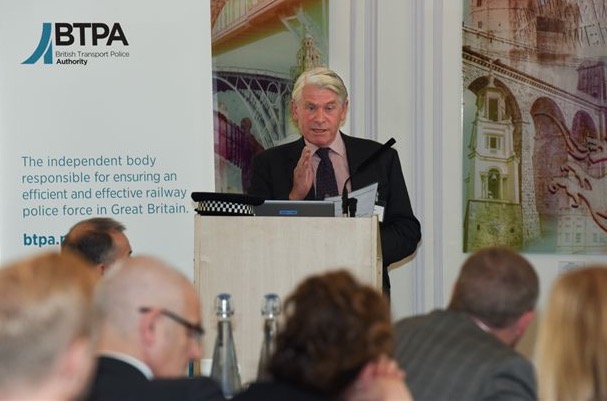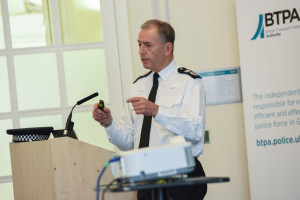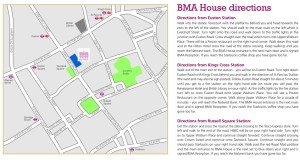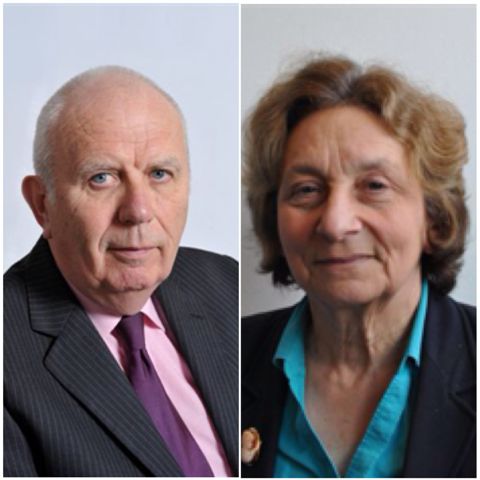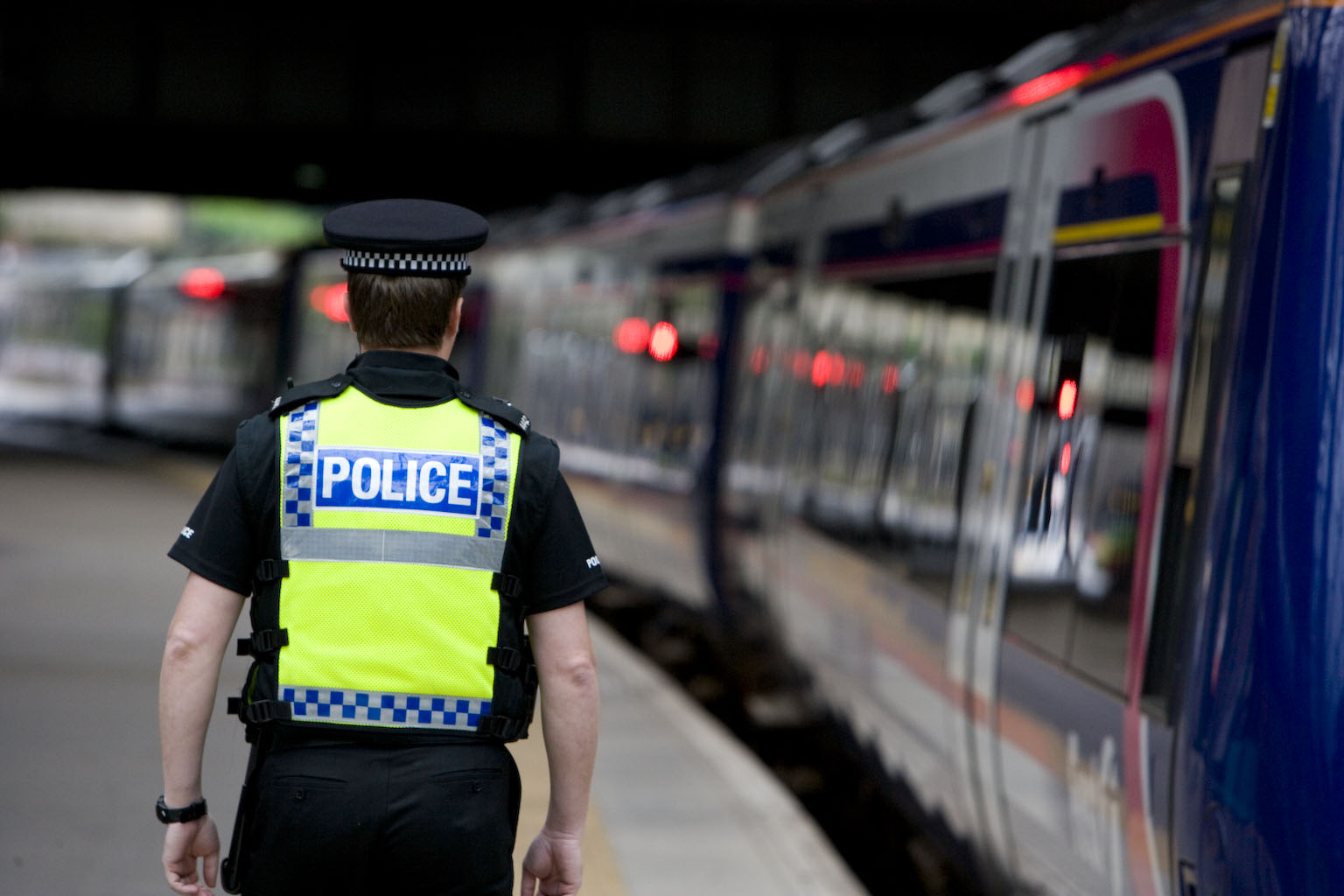Officials from UK and Scottish Government joined senior passenger and rail industry representatives in London last week to discuss the future of policing Great Britain’s railways and the current issues affecting the British Transport Police (BTP) and rail (24 September).
Invited guests, including representatives from Transport Focus, TfL, Rail Delivery Group (RDG) and freight and train operating companies were attending the British Transport Police Authority’s (BTPA) Annual Industry Workshop where a clear message of collaboration and a willingness to engage threaded through talks delivered on the day.
Opening the event, acting Chair of the BTPA Brian Phillpott reminded guests of the commitments the Authority had made at last year’s event and confirmed that the Authority is still guided by those principles which were designed as a result of industry feedback.
Setting the scene for policing, the Chief Constable of BTP Paul Crowther shared with guests the complexities and challenges of policing a major transport system which unlike other transport hubs, cannot adopt airport style security measures and yet would result in massive disruption costing society billions if under terrorist attack. During this period of heightened security the Chief discussed how it is more important than ever to work with industry to prepare and develop plans. Reinforcing the theme of collaboration, the chief reminded delegates that the ambition of the Authority and the Force is for BTP to be the supplier of choice and not just a service that the rail industry has to fund. Pointing to the value the BTP adds to the rail industry, Paul discussed the additional functions performed by the Force that do not constitute core policing yet saves industry and society billions each year. These value added services, such as preventing trespass or suicides, were picked up later in a presentation by the Chief Executive of BTPA Andrew Figgures who discussed the Force’s budget.
Andrew encouraged industry to consider how much it values the performance of these additional duties – which fall outside the realm of statutory policing – and as such could be compromised by government cuts. He invited guests to engage with the Authority and the Force to better understand the issue and the potential impact on a service that has been collaboratively fine-tuned over the last decade.
Guests were also invited to get involved in consultation kicking off next month that will be used to design the plans and priorities for policing in 2016/17. Liz France Deputy Chair of the Authority highlighted how the 2015/16 policing plans evidenced the strong correlation between industry requests and a Force and Authority response. This included the delivery of local problem solving plans and a breakdown of the deployment of Force resources across the rail network and Liz appealed for active industry engagement this year. The wider issue of a government review, which could mean the scrapping of police targets, was also raised by the deputy chair who encouraged industry to talk to the Authority about this matter to determine whether targets are still the right approach for the rail community. This was followed up by a presentation by RDG who described the work it was doing to assist and support policing and security on the railways.
Before closing the annual workshop Brian, who had chaired a lively Q&A with industry guests and speakers said: “We welcome the challenges and input from industry today as it improves relationships and the services we deliver.”
To compliment upcoming policing plan consultation, industry heads of security will be sent a survey later in the year to help better understand their needs for policing in 2016/17 and to measure how they feel the Authority and the Force have performed over the last 12 months.
BTPA Chair Brian added: “I am confident that guests who attended this year’s event will take back the message that both the Authority and the Force are eager to continue to do business and provide a service that is backed and directed by the people who use it.”
Click on the links below to view slides from the event:
Paul Crowther Chief Constable, BTP: Policing update
Liz France Deputy Chair, BTPA: Policing plan 2016/17
Andrew Figgures Chief Executive, BTPA: Impact of Spending Review 2015
Andy Odell, RDG: One year on

